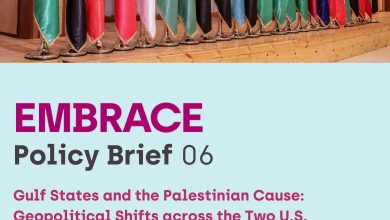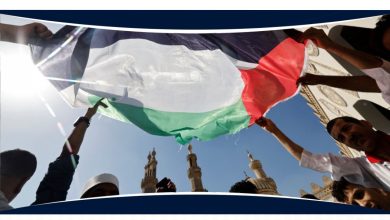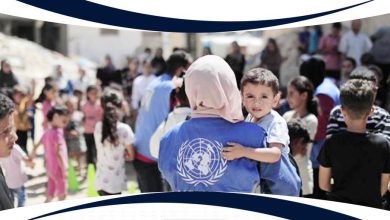PalThink Organized RTD on “The Effects of COVID-19 on The Economic Sector in Gaza Strip”.

Pal- Think for Strategic Studies organized a discussion session through the Zoom Program to discuss a research paper entitled “The Impact of The Corona Crisis on The Economic Sector in Gaza Strip”. The discussion was with the participation of the under-Secretary of the Ministry of Economy in Gaza Dr Rushdy Al-Wadi, and the President of Garment Industries’ Federation, Mr Tayseer Al-Ostaz. Besides, the Director of the Palestinian committee for restaurants, Hotels and Tourism Services Mr Moin Abo AlKhair. Plus, The director of the Pal Trade Mr Mohammed Skik, and the deputy contractor union Mr Osama Kheil. Besides, a group of researchers and representatives of civil society organizations.
The session was opened by Pal-Think’s director Mr Omar Shaaban, welcoming the audience, and said that: Pal-Think is an independent non-profit civil institution that aims to seek and present the truth and has a long track record of community reconciliation. Then he added, that Pal-Think’s has produced a reconciliation paper in partnership with the Swiss representative dealing with the file of employees.
He also pointed out that Pal-Think is bringing new young efficiencies and giving them opportunities to present themselves and enhancing neutral scientific research. Mr Omar also said that the Palestinian private sector, which represents one of the main parts of the economic development, has a big role in creating job opportunities and achieving development, is experiencing continuous crises since the beginning of blockade and Palestinian internal conflict. Besides, COVID-19 crisis that makes the reality even worse.
According to Shaban, although the private sector has experienced multiple crises related to subjective factors, some of which are related to international circumstances such as the scarcity of international finance, the blockade, the prevention of entry into some goods and exports. It is worth noting that some economic sectors are affected by the Corona crisis, while others have benefited. Shaban emphasized that this is an indication of the economic sector’s capacity to adapt and benefit from crises.
Mr Rushdy Al Wadi, the under-Secretary of the Ministry of Economy, appreciated the work of Pal- Think and the paper. He said that they are in a real crisis of all its dimensions, and the current situation needs planning teams. After that, he added, that the Palestinian economy is fragile and weak even before COVID-19 pandemic.
He also stated that the economy was not the real priority during the Corona pandemic in the Gaza Strip, yet four months ago they established the State Economic Council, with the ministries of finance and agriculture and experts from every vital sector. He further said that they reactivated the Ministry of Planning.
The researcher, Dr Ra’ed Heles, talked about the paper that dealt with the impact of Corona crisis on the Gaza Strip, which is experiencing difficult economic conditions represented by the consequences of the severe Israeli blockade. In addition to the negative effects of the Palestinian internal conflict, which affected the sector’s share of the budget and humanitarian aids. Besides, Tight precautionary measures that negatively affect the economic reality and even threaten it to collapse.
In addition, the Assistant Researcher, Mr Ahmed Al-Sammak, reviewed the economic sectors that were affected by the Corona crisis: Tourism, industry, agriculture, construction, transport and communications, commercial and information technology sectors.
On the other hand, the assistant researcher, Ms Niven Abdel-Aal, spoke of the economic sectors that benefited from the Corona crisis: The garment and textile, food, chemical, and the pharmaceutical industries.
The paper concluded with recommendations such as balancing the health and economic aspects through coexistence with the crisis, practising the economic activity gradually and in a tangible way, providing the economic and social protection for the affected, developing the economic sectors and achieving the elements of sustainability through the development of governmental plans that take into account the crisis consequences.
Then Mr Tayseer, president of the Federation of Garment Industries, noted that they had benefited from the Corona crisis through exports, and most exports were protective clothing and masks for the West Bank. then he added that there were 50 sewing factories in the Gaza Strip, affected by the closure of schools, and by imported clothing because of the lack of commitment by some traders to government policies.
In a related context, Director of the Palestinian Committee for Restaurants, Hotels and Tourist Services, Mr Moin Abu Al-Khair pointed out that the tourism economy is the second world economy after the technology and communication sector. Investment in the world’s tourism sector amounts to nearly $1 trillion, while in Palestine, investment in the tourism sector amounts to $13 billion and $800 million, while in the Gaza Strip, investment in the tourism sector amounts to nearly $1 billion, divided into hotels, restaurants, hotels, cafes and wedding halls.
He further explained that the most important of the blockades were: The Israeli blockade and the closure of the Palestinian crossings and internal conflict. Besides, the COVID-19 pandemic came to strike the internal tourism on which the tourism sector in the Gaza Strip depends. He also called on the government to provide tax breaks and the international community to intervene.
Moreover, the director of the Palestinian Trade Centre, Mr Mohamed Skik pointed out that the commercial sector in Gaza is affected by the Corona crisis because of the poor purchasing power that represented a crisis in providing cash, because of the Israeli-made barriers and the impossibility of building a strong economy without exportation.
Mr Skik, stressed that the civil society and government institutions should discuss with the financier and turn the target of funding from relief to development. After that he emphasised in the most important thing is the operating boxes. as well as, there must be coordination between experts and the private and governmental sector.
Referring to the Undersecretary of the Ministry of Economy, who spoke about the role of his ministry during the crisis, and said that he wanted to point out that their capabilities as a very weak government and without relief organizations and money-for-money projects, things would be more complicated and difficult. He further stated that the crisis was bigger than them and their potential.
He also stressed that private sector losses were estimated at $61 million in March 2020, in addition to 114,000 workers who became unemployed, and by the end of 2020 losses were close to $1 billion. Then he said as, for the government’s interventions, they have built the field hospital at a value of $170,000, disbursed $100,000 and $95,000 to the Ministry of the Interior to cover expenses and quarantine expenses, disbursed emergency financial advances to the Ministry of Social Development of 400,000 NIS and disbursed 1 million shekels to municipalities.
Mr Rusdy Further said that providing compensation to those affected by the agricultural sector at a value of one million dollars, because there was concern about the shortage of the commodity stock in Gaza Strip.
The undersecretary of the Ministry of Economy in Gaza noted that the government revenues in Gaza are based on fuel and tobacco tax. Then he explained that the fuel tax revenues fell 2 million shekels per month, as universities and overall mobility stopped. As well as, the decrease in value-added is about 2.5 million dollars a month, in addition to the decrease in the ministries’ revenues.
As for the interventions to mitigate the effects of the Corona economic crisis, Dr Rushdy Al-Wadi said that they have provided 50% exemption to the industrial city, implemented a full and partial exemption package in several ministries.
After that. He indicated that a plan has been drawn up with the Federation of Garments Industries to import clothes. On the subject of exports, the most important subject of concern, and they have exempt exporters from taxes.
He also confirmed that they had a decision not to close the export in any way, even at the expense of higher domestic prices. Mr Rushdy also stated that the Ministry of Health prefers to fully close due to COVID-19, but they, in the Ministry of Economy, wanted to lift the ban completely, but ultimately, they reached a balance between the Ministry of Health and agreed to partial look down.
















